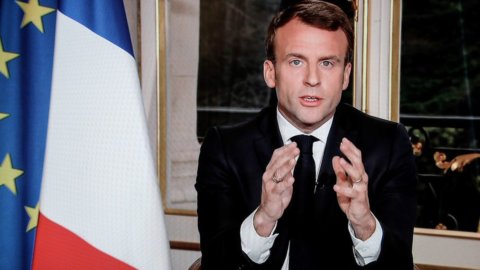The European economy worsens, the pressure for an easing of austerity is growing. Scrolling through the 192 pages that make up the very recent document of the EU Commission on the autumn economic forecasts, one wonders what are the effects of the austerity policy adopted up to now by Europe. Also and above all in the light of the contemporary reversal reaffirmed by the International Monetary Fund, which a couple of years ago through the mouth of a high-level official had said the same things repeated now in an official document.
The organization headed today by Christine Lagarde has just acknowledged that it had made the wrong solicitation when, at the first signs of recovery from the global crisis that exploded at the end of 2008, it embraced the thesis of the need for financial rigor to restart the economy. A remedy that is a bit like encouraging someone who has just injured an ankle to run. And in fact now the Fund, in a document drawn up by its Independent evaluation office and shared by the directorate of the IMF itself, recognizes the error and says that, yes, for a more rapid recovery it would have been better to activate more expansive budgetary policies.
Therefore, if the IMF's rethinking is explicit (everyone is then free to remain anchored to the idea that financial austerity policies in such cases are more effective), in the Autumn Economic Forecasts produced on Tuesday 4 November by the Brussels Executive the The option of contrasting the global crisis based on expansionary policies is not declared, and perhaps not even intentional. But also from reading those forecasts, starting with the editorial signed by Marco Buti, director general of economic and financial affairs of the Commission, the doubt arises that, to defeat a serious economic and financial crisis, expansionary budget policies could be more effective than those set on austerity.
Because it is rather difficult to understand that after six years of financial rigor Europe (let alone Italy) has not managed to emerge from the crisis. Indeed, as evidenced by the Autumn forecasts, after the "recovery" of 2013 which continued at the beginning of this year, the EU will end 2014 with a GDP growing by just 1,3% compared to last year , the Eurozone with an even more modest 0,8% and Italy down by 0,4%. And with equally discouraging data on unemployment (too high) and inflation (too low). And even if the Forecasts speak of moderate growth for the next two years, they add that at least until the end of 2016 there is no prospect of a more significant economic recovery.
However, if there is no doubt that the picture drawn by these Forecasts does not seem to encourage optimism, a new element still remains unaffected which is still difficult to assess: the impact of the new Commission chaired by Jean-Claude Juncker on economic policies and finances of the EU (with the announcement of a program, still nebulous, of investments for 300 billion) together with that of the equally new European Parliament (where the push for expansionary budget policies seems to be the majority).
After just one year of moderate growth, the European economy began to slow down last spring. In the second half of the year, GDP growth in the EU will be very modest, in the Eurozone almost stagnant. Among the Member States of this area of the EU, growth will strengthen in Spain where, however, unemployment will remain high, it will begin to slow down in Germany after a very strong first quarter, in France the stagnation will continue while in Italy it will be a real and its own contraction. Financial markets have adapted quickly in recent weeks to the prospect of more modest growth, not just in Europe but around the world. For investors, a period of hunting for yield and willingness to take risks has come to an end.
The weakness in potential growth already evident in the low productivity gains in the years preceding the crisis has been accentuated by a contraction in capital formation and the increase in structural unemployment since 2008. In the first half of this year the slowdown in GDP growth recorded by the EU's major trading partners and the rapid deterioration of the geopolitical situation have led to lower than expected export growth in Europe. Due to the slowdown in production, the stagnation of the European economy remains considerable and is weighing on inflation also due to the collapse in energy and food prices. In 2015, however, growth will gradually recover and should be followed by a further upward push in 2016.
But, despite this slight recovery, growth will maintain a moderate trend until the end of the next two years. As far as the economy is concerned, the new EU Commission took office in a phase of headwinds. The double challenge for economic policy is to strengthen the dynamism of the economy in the short term and at the same time to revive growth in the medium term. Reconciling these two objectives will require multifaceted monetary and fiscal policy thrusts while addressing long-standing structural weaknesses. The recent decisions of the European Central Bank should improve the supply of credit to the real economy. From a fiscal point of view, the objective to be pursued is that of a more favorable orientation to increase growth in the short term and to develop growth potential in the medium term.





